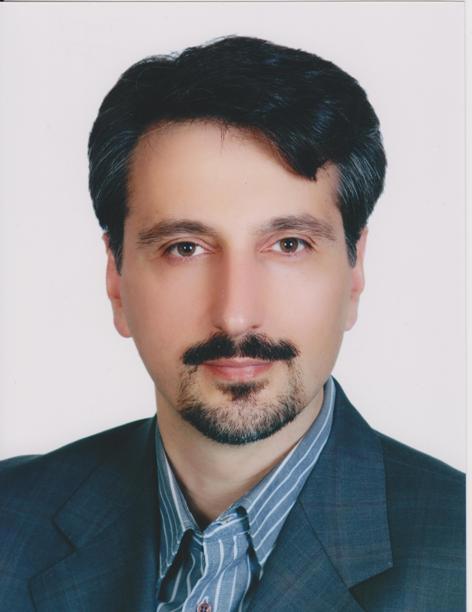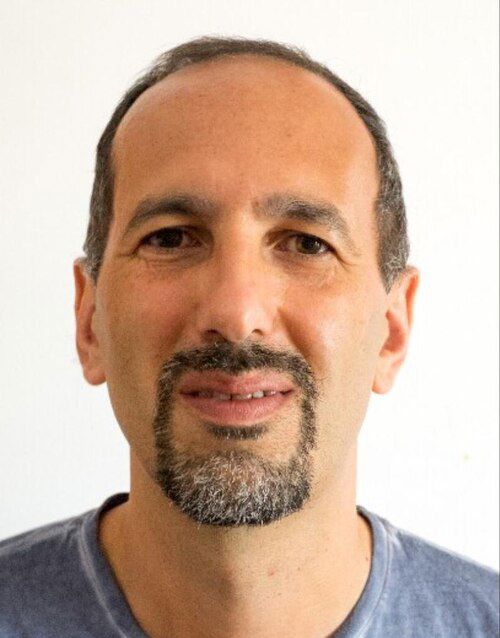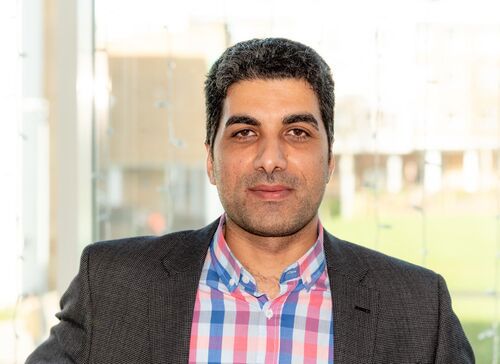
|
Title: Personalized AI Agents: A Social Learning Paradigm Abstract: The future of AI democratization depends on truly personalized AI agents. However, current machine learning approaches are often too complex, slow, and costly for scalable personalization by everyday users. In contrast, biological intelligence seamlessly integrates social and individual learning to adapt efficiently. This talk explores how social learning can revolutionize AI personalization, making intelligent systems more accessible, adaptable, and user-driven. Bio: Majid Nili Ahmadabadi (Member, IEEE) received the B.Sc. degree from the Sharif University of Technology, Tehran, Iran, in 1990, and the M.Sc. and Ph.D. degrees in information sciences from Tohoku University, Sendai, Japan, in 1994 and 1997, respectively.,He was an Invited Visiting Professor with the Autonomous System Laboratory, École Polytechnique Fédérale de Lausanne, Lausanne, Switzerland, in 2005, and with ETH Zürich, Zürich, Switzerland, in 2008. He joined the Advanced Robotics Laboratory, Tohoku University. Later, he moved to the School of Electrical and Computer Engineering, College of Engineering, University of Tehran, Tehran, where he is currently a Professor and the Dean of the School of Electrical and Computer Engineering (ECE); the Head of the Robotics and artificial intelligence (AI) Laboratory; the Founder and the Director of the Cognitive Robotics Laboratory; and also a Senior Researcher with the School of Cognitive Sciences, Institute for Research in Fundamental Sciences. His current research interests include cognitive robotics and modeling cognitive systems, learning systems, distributed robotics, object manipulation, and mobile robots. Links: Homepage & Google Scholar |
|
|
Title: Decentralized AI for Cybersecurity: The Power of Federated Learning Abstract: Data sovereignty and regulations, along with growing concerns over privacy and security, underscore the limitations of centralized machine learning (ML) in sensitive domains like cybersecurity. Federated Learning (FL) has emerged as a promising paradigm, enabling the collaborative training of global models without sharing raw data, thereby aligning with privacy and sovereignty requirements while meeting the demand for advanced ML analytics. This talk addresses these challenges and presents a framework based on sparse Mixture of Experts (MoE) architectures for FL in vertically federated settings, where parties hold complementary subsets of features. Sparse MoEs improve computational and energy efficiency by selectively activating experts and leveraging conditional computation. The framework mitigates risks of information leakage and reduces communication costs, supporting efficient model training and deployment. Additionally, the talk explores key attack scenarios, defense strategies, and efficient methods for distributing the VFL paradigm with minimal communication overhead.
Bio: Gianluigi Folino received a Ph.D. in physics, mathematics, and computer science from Radboud University in Nijmegen (Holland), The Netherlands. Since 2001, he has been a senior researcher at the Institute of High Performance Computing and Networking, Italian National Research Council (ICAR-CNR), Rende, Italy. He is also a Lecturer at the University of Calabria. Within ICAR-CNR, he has been the coordinator of several national and international research/industrial projects: “Cyber Security – Digital and Electronic Payment Services Protection” in 2013 and currently for the SPOKE 1 (Digital Sovereignty) of the PNRR Project SEcurity and RIghts in the CyberSpace (SERICS).He published more than 150 papers in international conferences and journals among which the IEEE Transactions on Evolutionary Computation, IEEE Transactions on Knowledge and Data Engineering, Information Sciences, Information Fusion and Bioinformatics. His research interests focus on applications of distributed computing and data mining in the areas of cybersecurity, big data, and bioinformatics.Dr. Folino is on the Editorial Board of Applied Soft Computing (Elsevier). Links: Homepage & Google Scholar |
|
|
Title: Engaging Patients in Healthcare: Conversational Assistants in the era of LLMs Abstract: Effective and compassionate communication with patients is becoming central to healthcare, and Natural Language Processing can play a central role in this endeavor. I will discuss the results of and lessons learned from two ongoing projects in this space, but also address the problem of bias in our computational models, especially LLMs. The VIRTUAL-COACH project models health coaching interactions via text exchanges that encourage patients to adopt specific and realistic physical activity goals; the HFChat project envisions an always-on-call conversational assistant for heart failure patients, that they can ask for information about lifestyle issues such as food and exercise. In the HFChat project, we directly compared an in-house conversational interface with one based on ChatGPT. This will bring me to the third part of the talk, in which I will discuss our study of bias in LLMs applied to healthcare. Bio: Barbara Di Eugenio is the Warren S. McCulloch Collegiate Professor and Director of Graduate Studies in the Computer Science department at the University of Illinois Chicago (USA). There she leads the NLP laboratory (http://nlp.cs.uic.edu/). She obtained her PhD in Computer Science from the University of Pennsylvania (1993). Her research has always focused on the pragmatics and computational modeling of discourse and dialogue, grounded in authentic data collection on the one hand, and in user studies on the other. The applications of her work run the gamut from educational technology to human-robot interaction, from data visualization to healthcare. Dr. Di Eugenio is an NSF CAREER awardee (2002); a UIC University Scholar (2018-2020); a Zenith Award recipient from AWIS, the Association for Women in Science (2022); and an Association of Computational Linguistics Fellow (2023). She has been the editor-in-chief for the Journal of Discourse and Dialogue since 2019. She is very proud to have graduated 16 PhD and 32 Master’s students. Links: Homepage & Google Scholar |
|
|
Title: Toward Privacy Preserved Large Multi-Modal Models Abstract: Large Multimodal Models (LMMs), such as GPT-4V and LLaVA, have become essential across various industries, including healthcare, e-commerce, autonomous driving, and robotic manipulation. Given their widespread applicability and transformative potential, LMM-based products are expected to constitute a significant and rapidly growing market. However, the immense potential of LMMs has also sparked growing concerns about privacy and copyright protection, voiced by diverse stakeholders throughout the LMMs' lifecycle. From the general public’s perspective: 1) their personal data shared online is vulnerable to exploitation without their authorization or even awareness, by third parties like LMM services. 2) Additionally, using LMM services often requires individuals to proactively upload personal data to the cloud, further heightening concerns about potential privacy breaches. From the perspective of LMM providers: 1) Retaining knowledge that violates privacy or copyright within their models can be illegal. 2) Furthermore, their models, which they have invested significant effort in developing, are also at high risk of being stolen or misused. The aim of this talk is to explain the problem from the perspective of LMM providers as well as the general public’s perspective and introduce two methods that address privacy concerns from the public’s standpoint. Bio: Professor in Computer Vision and Machine Learning, Lancaster University. Associate Editor of IEEE Transactions on Neural Networks and Learning Systems, Pattern recognition, ACM Computing Surveys , and Area Chair of CVPR 2025, CVPR 2024, ICLR 2025, ECCV 2024, IIJCAI 2023 and IJCAI 2024. Links: Homepage & Google Scholar |
|



